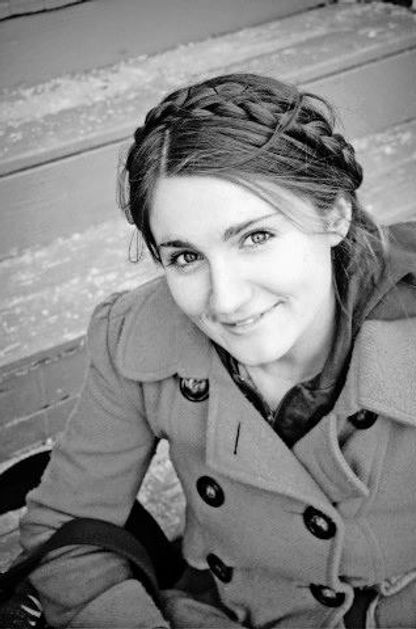about
MARINA
1989-2012
Marina Keegan was a writer of short stories, personal essays, social commentary, poems, and plays: a literary pentathlete.
Let's make something happen to this world.

Marina grew up in Wayland, Massachusetts, and spent her summers in Wellfleet and at the Cape Cod Sea Camps in Brewster, where she learned to love sailing and the sea. She attended Wayland public schools and the Buckingham Browne & Nichols School in Cambridge.
At BB&N, Marina headed the Model United Nations Club, served as a peer counselor, performed in many plays and musicals, sang in the chorale, played four years of varsity lacrosse, and earned a place in Cum Laude, the academic honor society. She won the Jacobs Cup as the top sophomore debater; the Profile Writing Prize as a junior; and the Meriwether Otis Kimball Award for her involvement in school life, along with the George Henry Browne English Prize, as a senior. The citation for the Browne Prize read: “Known for her keen intellect, irrepressible enthusiasm, strong opinions, and ready humor, she writes with insight, nuance, and grace.”
At Yale, Marina was an English major and a Writing Concentrator. A political activist, she was a leader of Occupy Yale; served as one of the youngest paid staffers on the Obama campaign; and, as president of the Yale College Democrats, registered voters and organized panels on health care and homelessness. As a writer, she won the Meeker English Prize, the ORLO Writing Award, and Yale’s Moth Story Slam. During her college years, she also won David Rakoff’s Gilded Ink Writing Contest and heard her story read on NPR’s “Selected Shorts.” Her work appeared in The New Yorker online and The New York Times, and she is the only person ever to have been honored for both fiction and nonfiction by the Norman Mailer College Writing Competition.
This book’s title essay, “The Opposite of Loneliness,” was Marina’s final message to her college classmates, distributed in a special edition of the Yale Daily News at the 2012 Commencement exercises. After her death in a car accident five days after she graduated magna cum laude, her words of inspiration resounded around the globe, receiving 1.4 million hits in 98 countries and transforming her into an icon for her generation.
The Opposite of Loneliness is culled from the rich trove of writing Marina left behind when she died at 22. Her family, friends, and teachers worked together to find the most recent versions of her essays and stories and choose the best. Marina would have been proud that her book is published by Scribner, the publisher of some of the writers she most admired, including Hemingway and Fitzgerald.
Playwriting provided another important platform for Marina. Her insightful focus on familial and romantic relationships and her honest, witty dialogue raised serious issues and filled theaters with laughter. Her play Utility Monster won “Best Reading” in the Midtown International Theater Festival in New York City and was later performed at the Wellfleet Harbor Actors Theater. She wrote the book for the musical Independents (with music by Stephen Feigenbaum and lyrics by Mark Sonnenblick), which was featured in the New York International Fringe Festival. The New York Times selected Independents as a Critics’ Pick and described it as “salty and lyrical.”
Throughout these many projects, Marina lived her life with passion and conviction, treating every day as an opportunity. She sang, played guitar, painted, rallied for Democratic causes, and, most of all, spent time with those she loved. She expressed her strong individual style in every aspect of her life, from what she wrote to what she wore (short skirts, lace-up boots, patterned tights, bracelets, rings, blazingly bright pea coats). She was a daughter, sister, friend, significant other, leader, activist, athlete, and actress, and she used all of her experiences to engage, inspire, and challenge others. She could turn a phrase, make you laugh, make you cry. Her words could make you want to shake your fist and march with her to save the whales, support the Dream Act, stand up for same-sex marriage, and elect the next president. Everyone who met her seemed to carry away a story. As a young graduate of her high school put it, “She turned a lot of people into who they are.”
Marina’s death became a summons to life for the millions who have heard her words. “Let’s make something happen to this world,” she wrote. Her readers have taken up her challenge by making documented changes in their lives and the lives of others.
We were privileged to know Marina for 22 years. We hope that her words will help you get to know her too, and that they will make a difference in your life.
–– Marina's parents
Tracy Shoolman
Kevin Keegan




